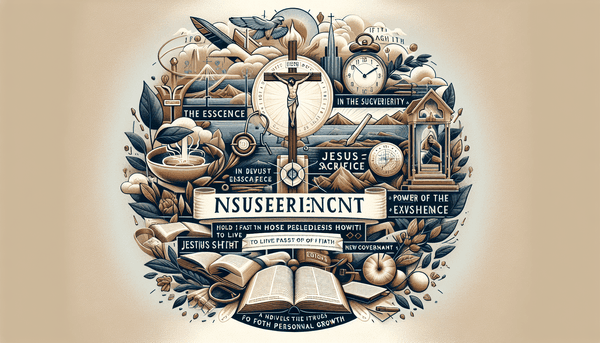Lucifer's Rebellion and the Fall from Grace
The enigmatic figure of Lucifer, once an epitome of beauty and wisdom, represents the ultimate tragedy of falling from grace due to pride and rebellion. The prophet Ezekiel, in a lamentation over the king of Tyre, employs language that resonates with the story of this celestial being. Ezekiel 28:12-17 speaks of a creation adorned with precious stones and situated in the divine presence, yet iniquity was found within. Similarly, Isaiah 14:12-15 poetically recounts the fall of a figure known as the 'morning star,' a metaphor that has often been associated with Lucifer. These passages, along with others like Luke 10:18, where Jesus states, '...I saw Satan fall like lightning from heaven,' and the epic battle described in Revelation 12:7-9, together weave a narrative of a primordial struggle between pride and divine order. The Apostle Paul also cautions against such arrogance in 1 Timothy 3:6, possibly alluding to the devil's downfall. These scriptures not only recount a cosmic event but also serve as a timeless warning against the dangers of hubris.
The Nature of Life and Death
In the human heart lies a profound curiosity about the nature of life and death, a theme the Bible does not shy away from. Ecclesiastes 9:5 confronts us with the stark reality that the living are acutely aware of their mortality, while the dead are oblivious to earthly concerns. The Psalmist further echoes this sentiment in Psalm 146:4, reminding us that human plans perish with their makers. The New Testament also addresses the finality of death and the promise of judgment in Hebrews 9:27. However, it is in Jesus' words in John 11:25-26 that we find a message of hope, as He speaks of resurrection and eternal life. The Thessalonians were comforted by Paul in 1 Thessalonians 4:13-14, who reassured them about those who had passed away. These verses collectively challenge us to live lives of purpose and righteousness, fully cognizant of the impermanent nature of our earthly existence.
Seeking Spiritual Renewal
The quest for spiritual renewal is a central theme in the life of any believer. The Psalms, particularly Psalm 51, guide us through the process of repentance and restoration to joy in God's salvation. The act of confession is essential, as 1 John 1:9 assures us of God's faithfulness to forgive and purify us from all unrighteousness. The transformative power of new life in Christ is vividly depicted in 2 Corinthians 5:17, where Paul celebrates the new creation that emerges from the ashes of the old. In a similar vein, Ezekiel 36:26 promises a new heart and spirit, signifying God's work of renewal from within. James 4:8 invites us to draw near to God with the assurance that He will reciprocate. These passages collectively offer a blueprint for spiritual awakening, emphasizing the importance of humility, confession, and the pursuit of a righteous life.
FAQ
Q: What is a good Bible verse that hints at Lucifer’s rebellion?
A: Isaiah 14:12-15 is a primary passage hinting at Lucifer's rebellion, describing the fall of the 'morning star' from heaven.
Q: What does Ezekiel 28:12-17 say?
A: Ezekiel 28:12-17 contains a lamentation for the king of Tyre, using language that some interpret as symbolic of Lucifer's fall, describing a being of perfection and beauty who became prideful and was cast down.
Q: Can you provide additional biblical references that expand on Lucifer's rebellion?
A: Besides Ezekiel 28 and Isaiah 14, references like Luke 10:18 and Revelation 12:7-9 provide additional context for understanding the theme of rebellion in the heavenly realm.
Q: What is the significance of the fall of Lucifer?
A: The fall of Lucifer symbolizes the consequences of pride and rebellion against God, serving as a warning and lesson in humility for believers.






